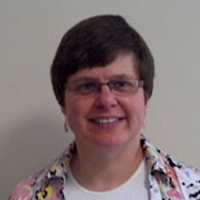April 24, 2012

Mary Morder
Materials Development / Information Technology Support, Southeast ADA Center
Mary has more than 25 years of experience in business communications and disability rights. She writes, edits, develops, and coordinates materials related to the Americans with Disabilities Act (ADA) for the Southeast ADA Center, located in Atlanta, Georgia.
Established in 1991 and operated by the Burton Blatt Institute (BBI) at Syracuse University since 2006, the Southeast ADA Center is one of 10 regional centers dealing with the ADA and accessible information technology. The Center serves an eight-state region: Alabama, Florida, Georgia, Kentucky, Mississippi, North Carolina, South Carolina, and Tennessee.
Tell us about your connection with disability rights and advocacy.
I have been involved with disability issues all of my life. I was born with Cerebral Palsy. My parents raised me to think and act for myself and to speak up when I thought I wasn’t being treated fairly. In the early 1970’s, my father became President of the Central Maine Chapter of United Cerebral Palsy. He would take me along to fund raising events all over the state, beginning when I was 8 or 9 years old. However, the experience that probably had the biggest impact on me was summer camp. For five years, I spent a month each summer away from home at Pine Tree Camp in Maine. It was a camp just for kids with disabilities, and it was a fabulous experience! I learned so much about myself and about other kids with disabilities. We did the same things all other kids at summer camp do.
This camp experience helped develop my beliefs that people with disabilities can and should be able to do all the things that “normal” people do. Anything is possible if you have the right “tools” to make it happen. Disability rights are human rights. After those formative childhood experiences, I wasn’t directly involved in disability rights until after the ADA became law. I moved to Georgia in 1974, continued at school and graduated from college, and then I worked in publishing, writing and law.
How long have you been with the Southeast ADA Center? Describe your role.
In 1993, I got a job as a paralegal helping people with legal issues involving the ADA. That job eventually led to my being hired in 1996 by the Southeast DBTAC, which is now known as the Southeast ADA Center. I have worked here for more than 15 years. When I started in 1996, I worked part-time answering the phones and sending out ADA publications in the mail. For the last 12 years or so, I also developed and produced our newsletters and other educational materials on the ADA. Today, other coworkers handle the newsletter and most of the other administrative tasks, and I focus on writing and developing specific ADA materials for our website and other projects (ADAsoutheast.org).
Although the ADA was enacted more than 21 years ago, there are remaining questions about compliance with this legislation, and people with disabilities still need clarification about their rights under the ADA. What are common queries the Center receives?
We receive many questions about employment rights, both from employees and employers who want to know what the ADA requirements are. There is a lot of confusion about the “effective communication” requirement under the ADA. Specifically, many businesses, employers and other organizations don’t realize that in most situations, they have a legal obligation to provide effective communication to a person who is deaf or hard of hearing. This legal obligation may involve providing a sign language interpreter or other means of effective communication for the customer, employee or client who comes to them for services. Other popular topics are swimming pool accessibility and service animals. Recent changes to the ADA regulations, especially in these two areas, have led to a lot more calls to the Southeast ADA Center toll-free information line (1-800-949-4232).
Favorite part of the job?
When I hear that our staff helped someone with a disability to understand what their rights are under the ADA, and then our information helped the person resolve his or her ADA issue successfully so that his or her rights are protected